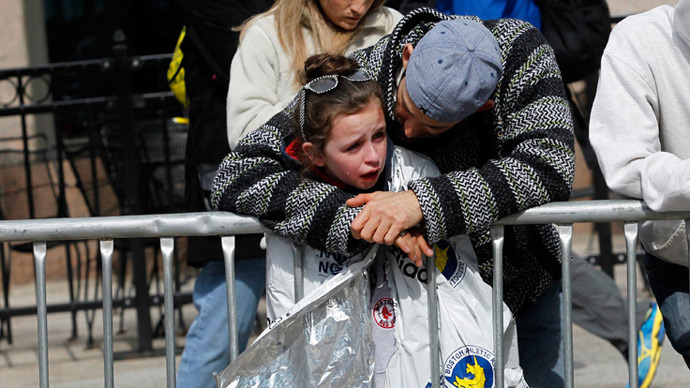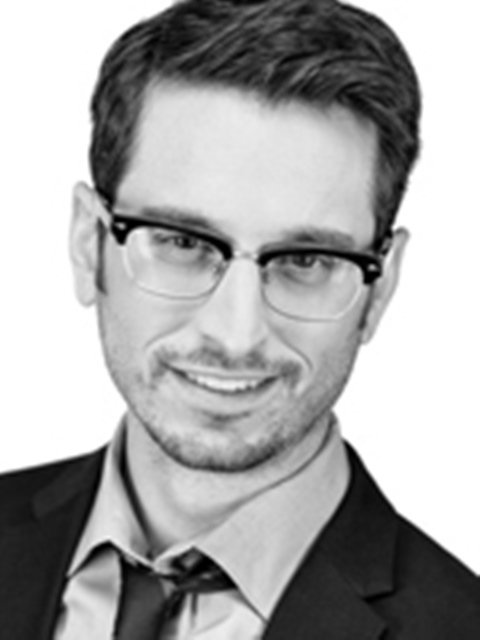Good vs. Evil, Boston and Beyond

I don’t personally believe in a dark-force permeating around the universe known as “evil.”
But, I know that when a shrapnel bomb mows down an
eight-year-old while he’s standing on the street waiting to hug his
dad after the Boston Marathon, then some sort of “evil” is
present.
Call it whatever you want, something stalks the planet today. It
uses unspeakable violence and a brutal indifference to steal lives,
to steal innocence from our kids, and to steal hope from our
idealists.
What causes it has been written about for much longer than I’ve been writing for, and much, much longer before that.

But, we do know that every time this “evil” flares up in
shocking real-life colors, it’s met with an equally powerful force
that’s best described as “good.”
We learn so much about ourselves during these times of horror. We learn that we run toward the violence, and toward the screams and the blood. We learn that we shut away our most Ayn Randian desires and shower love upon those who are crippled. And we do all of these things with little thought about our own safety. We sacrifice ourselves.
Yesterday, splashed all across social media was that Fred Rogers quote, “Look for the helpers.
You will always find people helping.”
It’s an interesting critique on humanity. Why is the best of us
brought out during the worst of times? It, too, is a question
that’s been pondered for millennia.
Underpinning religious, political, and philosophic doctrine is a
question about human nature. Is it inherently evil? Or good? Or is
there such a thing at all?
Clearly, there is something in our nature that flicks on a
guiding light when the world turns black. And if we are to judge
human nature, it should be during these times, when we act not
based on what some cable news outlet says, or what some fearful
politician says, but instead what our own guts tell us to do, when
people are dying around us and it’s up to us to save
them.

Like first responders in New York City who rushed toward the towering infernos. Like teachers at Newtown who rushed toward the gunfire. And like Bostonians who rushed toward the white smoke, the broken glass and the bloody sidewalks on Monday. This is our nature.
This isn’t exclusively American. In places like Iraq and Afghanistan, these bombings are near regular occurrences, and often include the far deadlier second blasts aimed at first responders. Yet, as soon as the first blast recedes and the shrapnel settles, the heroes continue rushing in with little regard for their own safety.
This is also true of those responding to the victims of our drone strikes abroad. Those attacks, too, are often followed up by a “double-tap” – or, second strike, but the helpers still run in.
Again, this is our nature, which is so rarely on display day-to-day.

It’s disturbing how many of us wander around the world listlessly, disregarding our fellow citizens who are in need, too busy to focus on little else besides our own condition. Recently, politicians promoting austerity have promoted this kind of vicious disregard toward the helpless.
But, when tragedy strikes that apathy disappears with the blood from our ghost white faces. Out of instinct, we become helpers, and that same person we may have disregarded on the street corner the day before, or actually cursed out while behind the wheel a week ago, or called a “taker” during the elections, now becomes the object of all our compassion. We sacrifice life and limb to help a stranger.
This proxy battle – when evil strikes, and then good consumes it – occurred once again on Monday. And once again, good won the day. It always does. It must.
But what will win tomorrow? And the next day? And the day after that?
Far too often, out of tragedies like this, evil creeps back in to win the war.
In the coming days and weeks, many of our questions will be answered and we’ll learn who was responsible for this and why they did it. But, can we trust ourselves to react appropriately to these answers? Upon learning who did this, can we trust ourselves to rely on that “good” that got us through Monday, to get us through the rest of the week, month, year?

I ask this question after more than a decade of two wars, and
inside a drastically different United States now under
surveillance, yet still unable to stop attacks like this. I asked
this question one day after the terrifying story of hunger strikes and brutality in Guantanamo Bay was
reported.
Just like on Monday, “good” won the day on 9/11. The world was amazed by the heroism of average Americans reacting to the events of that day. But there’s been little in the way of good in the world since.
Good won the day after Newtown, but since then guns have been flying off the shelves and on to the streets, and thousands have been murdered in just the few months after. Where did all that good go?
CNN’s major takeaway from President Obama’s statements on the bombings was that he didn’t use the word “terrorism.” It’s as though whenever tragedy strikes, we must pay penance with the war on terror gods.
We take a cruel comfort in knowing it was terrorism. It already fits neatly into our fearful worldview. We know the enemy and we know how to fight them. We’ve been doing it for twelve years.

But in those twelve years, we’ve allowed evil to flourish around
the globe. It’s embodied in the suicide bombings and car bombings
that mar daily life in war-torn regions of the Middle East. It’s
embodied in the relentless drone bombing campaigns that kill
similar eight-year-olds in Pakistan. And it’s embodied in the
right-wing xenophobia and racism that’s flared up in the United
States in reaction to a decade of war, a growing security state
apparatus, and economic strife.
Every single time, when the smoke clears, when our instincts
subside, and when our perspective is lost, the retrograde purveyors
of fear rush on to our TV and computer screens. Some motivated by
religious zeal, others by political extremism, and other by
profits, they play to our darkest emotions.
We must resist the fear, the despair, and most importantly, the
vengeance that they promote. These are all instruments of the same
evil we saw at the finish line in Boston. And they are at the root
of why we’ve let evil seize the last decade, and why, unless we
change course as a people here in the United States and abroad,
evil will seize the next decade, too.
There is uncertainty and danger ahead. It’s become the way of
the world in recent decades. But it can’t be any more uncertain and
dangerous than what hundreds of American rushed toward on Monday in
Boston. And they rushed toward it, not with rifles, drones, and
suspicion, but instead with hands free, ready to
help.
That’s the bravery and compassion that we need moving forward. And it’s the only posture that will give us a chance to restrain the evil beyond Boston.
The statements, views and opinions expressed in this column are solely those of the author and do not necessarily represent those of RT.
The statements, views and opinions expressed in this column are solely those of the author and do not necessarily represent those of RT.













